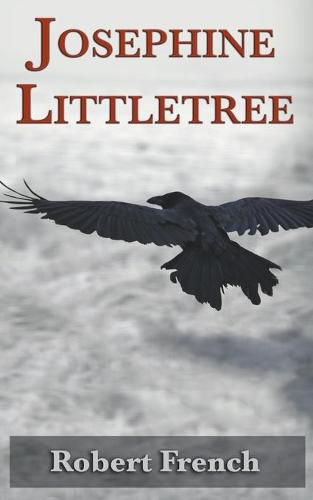Readings Newsletter
Become a Readings Member to make your shopping experience even easier.
Sign in or sign up for free!
You’re not far away from qualifying for FREE standard shipping within Australia
You’ve qualified for FREE standard shipping within Australia
The cart is loading…






This title is printed to order. This book may have been self-published. If so, we cannot guarantee the quality of the content. In the main most books will have gone through the editing process however some may not. We therefore suggest that you be aware of this before ordering this book. If in doubt check either the author or publisher’s details as we are unable to accept any returns unless they are faulty. Please contact us if you have any questions.
We sing songs about birds. They can’t understand them. There’s a song about us we can’t understand. Some of us hear it. To each it’s a different song and a different singer. I hear a bird that can’t sing. I hear the raven.
Josephine Littletree, a mixed-race aboriginal, grows up in British Columbia in the 1930s. At a residential school priests and nuns try to kill the Indian in her. She escapes and lives for years in her people’s hunting grounds but when she leaves faces prejudice again from white society. Her early relationships fall victim to it. Sometimes it’s a wild ride through a world of bootlegging, battering, prostitutes, bank robbery and the paranormal. Overcoming her addiction to alcohol, she takes her grandmother’s advice and gathers together the myths of her people in a book and becomes a storyteller. During World War II she meets a white man who falls in love with her. She lives with him in his shack on the waterfront. They are both outsiders, but with a difference that dooms their relationship. Returning to her reserve to take care of her sick grandmother, she contracts tuberculosis and retuses to see him any more. His letters go unanswered. In a sanatorium she meets with prejudice for the last time. In a final gesture of defiance and accetptance she goes back to her reserve. She writes about her life with acid humour, bitterness and regret. When the love between and man and a woman isn’t equal, there’s a reason. The man she rejects has chosen to be an outsider. She was born one.
$9.00 standard shipping within Australia
FREE standard shipping within Australia for orders over $100.00
Express & International shipping calculated at checkout
This title is printed to order. This book may have been self-published. If so, we cannot guarantee the quality of the content. In the main most books will have gone through the editing process however some may not. We therefore suggest that you be aware of this before ordering this book. If in doubt check either the author or publisher’s details as we are unable to accept any returns unless they are faulty. Please contact us if you have any questions.
We sing songs about birds. They can’t understand them. There’s a song about us we can’t understand. Some of us hear it. To each it’s a different song and a different singer. I hear a bird that can’t sing. I hear the raven.
Josephine Littletree, a mixed-race aboriginal, grows up in British Columbia in the 1930s. At a residential school priests and nuns try to kill the Indian in her. She escapes and lives for years in her people’s hunting grounds but when she leaves faces prejudice again from white society. Her early relationships fall victim to it. Sometimes it’s a wild ride through a world of bootlegging, battering, prostitutes, bank robbery and the paranormal. Overcoming her addiction to alcohol, she takes her grandmother’s advice and gathers together the myths of her people in a book and becomes a storyteller. During World War II she meets a white man who falls in love with her. She lives with him in his shack on the waterfront. They are both outsiders, but with a difference that dooms their relationship. Returning to her reserve to take care of her sick grandmother, she contracts tuberculosis and retuses to see him any more. His letters go unanswered. In a sanatorium she meets with prejudice for the last time. In a final gesture of defiance and accetptance she goes back to her reserve. She writes about her life with acid humour, bitterness and regret. When the love between and man and a woman isn’t equal, there’s a reason. The man she rejects has chosen to be an outsider. She was born one.